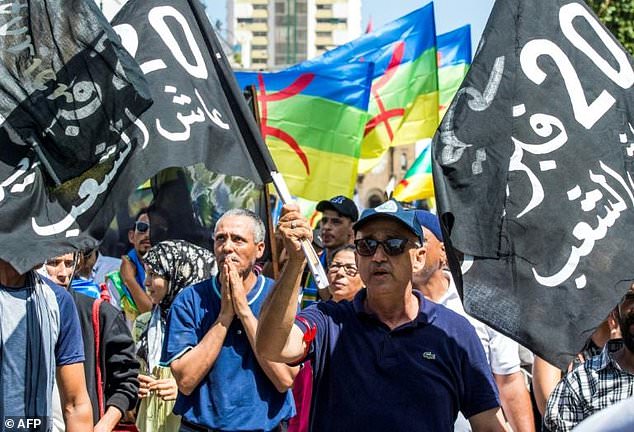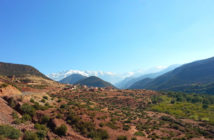Daily Mail Online
By AFP
Morocco has been hit by a wave of social unrest which began in October 2016 after the death of a fisherman and spiralled into protests demanding more development in the neglected Rif region and railing against corruption and unemployment.
The Moroccan government on Thursday announced a “new social deal” with employers and the main labour unions, under which many workers will enjoy a pay rise.
The deal agreed by the General Confederation of Moroccan Businesses (CGEM) and the three main unions — the UMT, UGTM and UNMT — is the fruit of months of negotiations
The minimum wage, currently 2,570 dirhams a month ($266), will be increased by 10 percent over two years from July, except for the agricultural sector.
Government-paid family allowances will also rise.
Meanwhile public sector workers will be given a 300-500 dirham monthly pay increase over three years.
Of Morocco’s main trade unions, only the Democratic Labour Confederation has not signed the social deal which, according to the government statement, is aimed at “improving spending power and the social climate”.
Last July, King Mohammed VI urged the government to take “urgent action” to address social issues, in particular health and education in the north African country which has been hit by protests over employment and corruption.
Mohammed VI pointed to social support and social protection programmes that “overlap each other, suffer from a lack of consistency and fail to effectively target eligible groups”.
After months of stalemate, the dossier was handed to the interior ministry at the beginning of the year and the final rounds of talks were held.
The social unrest began in October 2016 after the death of a fisherman and spiralled into a wave of protests demanding more development in the neglected Rif region and railing against corruption and unemployment.
Morocco is marked by glaring social and territorial inequalities, against a backdrop of high unemployment among young people. In 2018, it was ranked 123rd out of 189 countries and territories on the Human Development Index.







